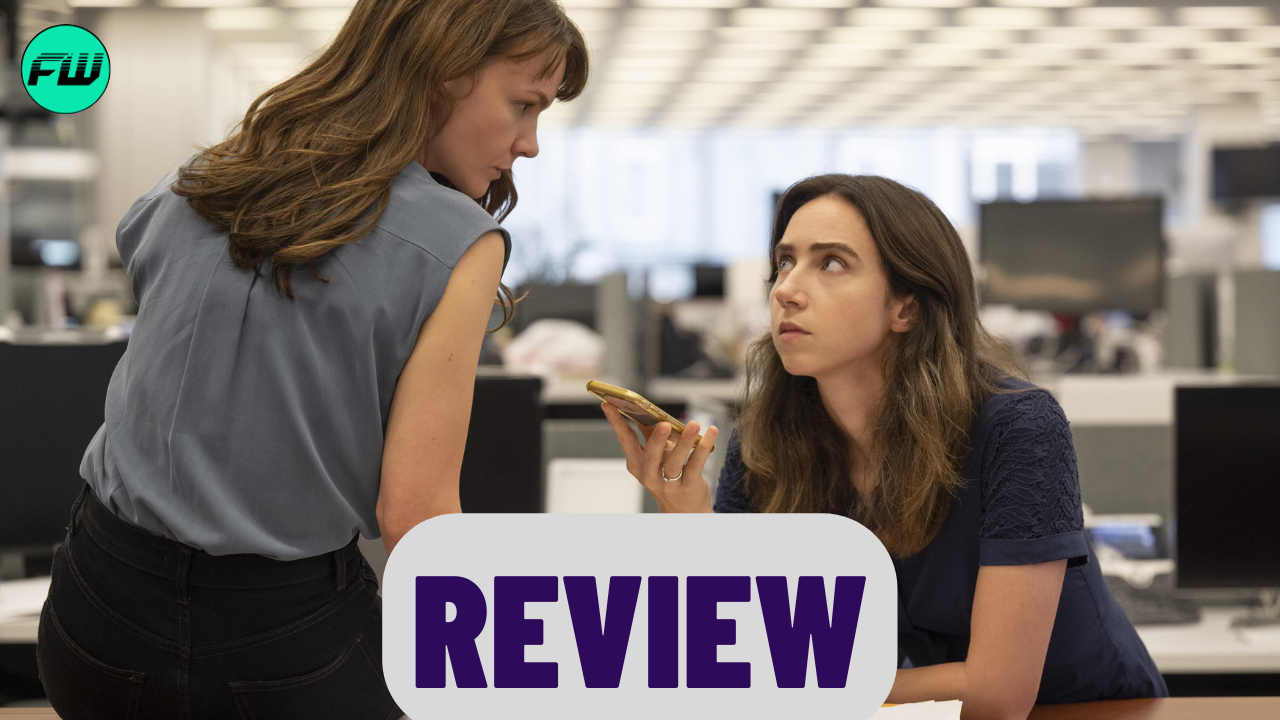Harvey Weinstein was once a Hollywood titan, but after a sexual assault revelation he was rightfully ousted and is now serving a decades-long prison sentence. It’s a story nearly everyone in the entertainment industry kept up to date with after it broke – but the Oscar-baiting film She says hopes to let the public know how it broke, and fails miserably to do so.
The film follows journalists Megan Twohey and Jodi Kantor as they investigate Harvey Weinstein’s history of sexual assault in Hollywood, kickstarting the #MeToo movement in a way that would have profound effects on the entertainment world. The New York Times Weinstein story is perhaps one of the most recognizable pieces in the history of journalism, and yet this film takes such an ineffective approach that it hardly seems as triumphant as it should.
Much of the film’s praise will come from the fact that it’s an acting showcase, and the power of the performances is pretty undeniable. Carey Mulligan and Zoe Kazan do a great job as reporters exposing the truth behind this network of cover-ups. Patricia Clarkson and Andre Braugher also stand out in the supporting cast as NYT writing.

Director Maria Schrader brings such a questionable directing style to the table, and it seems to be more out of desperation than creativity. The only real victim in the film is Ashley Judd, and the rest of the characters are clumsily written or portrayed using poor voice work. It’s understandable that these people don’t or can’t participate, but there are far less distracting ways that this could have been solved.
However, the area where the film suffers the most is its lack of empathy for Harvey Weinstein’s victims. While this is clearly the story of the journalists, there is a way to tell their story in a way that still cares about the victims as more than names to put in a newspaper story. These victims are hardly portrayed as significant beyond their role in the New York Times story, as evidenced by the climactic scene that zooms in on their names, showing them more as a name than a person.
Also Read: ‘I’m Gonna Beat Him’: Sopranos Star Who Would’ve Turned 61 This Year Threatened to Beat Sexual Predator Harvey Weinstein, Was King Sh-t Before #MeToo Happened

At several points in the film, this seems to imply that victims who choose to remain anonymous – whether out of fear or simply because they don’t want to – aren’t doing enough and should be doing more. While the people who have spoken out are undeniably brave, that doesn’t mean the people who haven’t aren’t. By adopting this perspective, Rebecca Lenkiewicz comes dangerously close to victim-shaming.
Lenkiewicz also shows a disappointing interest in the broken circumstances that created this situation in the first place. Sure, sexual harassment and discrimination are bad, but we didn’t need a movie to say that. We needed a film to lift the curtain on all the catalysts that allowed sexual assault to effectively become an epidemic, and She Said only addresses those issues through a few underdeveloped lines.
She says offers what is, quite frankly, a disgusting and retrograde perspective on the role of victims in the Harvey Weinstein case. While there’s no doubt that Twohey and Kantor’s work is important, this film’s lack of empathy – and perhaps even lack of interest – in the stories of the victims makes it a film that it would have been better not to do so. 2/10.
She says screened as part of the GEMS program at the 2022 Miami Film Festival, which runs November 3-10.
Also read: ‘He hopes he goes to jail or I’ll kill him’: Goodfellas star Paul Sorvino once openly threatened sexual predator Harvey Weinstein for attacking his daughter like a real mobster
Follow us for more entertainment coverage on Facebook, TwitterInstagram and YouTube.
